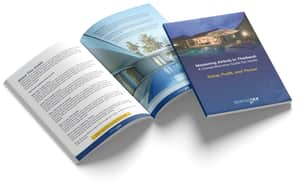Thailand’s tourism boom has led thousands of property owners to list their homes and villas on Airbnb and similar platforms. But if you’re renting out a property for short stays, an important question needs to be answered: Is your Airbnb legal under Thai law?
Many hosts are unaware that short-term rentals (STRs) in Thailand exist in a legal grey area. Others assume enforcement is lax and continue operating without a proper licence. But as pressure grows for the government to modernise and enforce STR regulation, understanding your obligations is no longer optional—it’s essential.
Here’s what you need to know.
The 30-Day Rule and the Hotel Act
Under the Hotel Act B.E. 2547 (2004), any property offering rental accommodation to paying guests for less than 30 days is considered a hotel and must be licensed accordingly.
This means that if you rent out your condo, villa, or home for nightly or weekly stays—even occasionally—you are likely operating as a hotel in the eyes of the law, regardless of whether your listing is on Airbnb, Booking.com or another platform.
What Happens if You Don’t Have a Licence?
Operating without a hotel licence can result in:
- Fines of up to THB 20,000, plus an additional THB 10,000 per day of continued operation
- Legal proceedings and potential blacklisting of your property
- Closure orders issued by local authorities
While enforcement has historically been inconsistent, there are increasing signs that authorities are beginning to crack down, especially in tourist-heavy areas and condominiums where complaints are common.
Two Main Types of Legal Registration for STRs
Thailand currently allows two primary paths for short-term rental legalisation—though not every property qualifies.
1. Hotel Licence
This is required if:
- Your property has more than 8 rooms
- You accommodate more than 30 guests
- You operate a commercial, large-scale rental business
These properties must meet strict safety, building, and zoning regulations, and this path is best suited to boutique hotels, large villa complexes, or commercial developments specifically built for tourism.
2. Non-Hotel Accommodation Registration
For smaller operators, Thailand allows certain private homes to register with the district office as non-hotel accommodation, provided the following updated conditions are met
- You offer up to 8 rooms
- You accommodate no more than 30 guests
- The building is used as a private residence and not solely for rental purposes
This option is significantly simpler than applying for a full hotel licence and is suitable for small-scale villa operators or families occasionally renting out part of their home. However, eligibility depends on local zoning rules and discretion of the district office, and not all local authorities may permit or recognise this registration.
These new thresholds came into effect on October 30, 2023, and reflect efforts to modernise Thailand’s approach to short-term rentals. Local variations in enforcement and zoning may still apply.
What About Condominiums?
Most condominiums in Thailand prohibit short-term rentals under their building regulations. Even if a licence could theoretically be obtained, condo juristic offices typically will not allow daily rentals, and local authorities may reject applications based on zoning restrictions.
If you are renting a condo unit for under 30 days, you are almost certainly in breach of both condo bylaws and national law. This makes condominiums a high-risk option for STR operations.
Upcoming Reforms: What’s on the Horizon?
As discussed in a recent Bangkok Post article, Thailand’s regulatory bodies are considering a dual-layered legal framework that would:
- Require national registration for all STR operators
- Allow local municipalities and condo communities to impose their own rules and restrictions
- Enable better tax enforcement and community protection
In other words, change is coming. The informal rental market is being reviewed closely, and future legal clarity may mean tighter oversight.
How Rental Tax Thailand Can Help
We work specifically with Airbnb and villa rental operators in Thailand to help you:
- Determine whether your property qualifies for legal registration
- Apply for the correct type of licence (Hotel or Non-Hotel)
- Navigate zoning and local rules
- Ensure your tax filings are compliant
- Avoid penalties and protect your income
Whether you’re just starting out or have been hosting for years, it pays to get expert advice.
Worried you might be operating illegally?
Book a free consultation with our team today. We’ll walk you through your options, assess your situation and help you find the right path to compliance.
